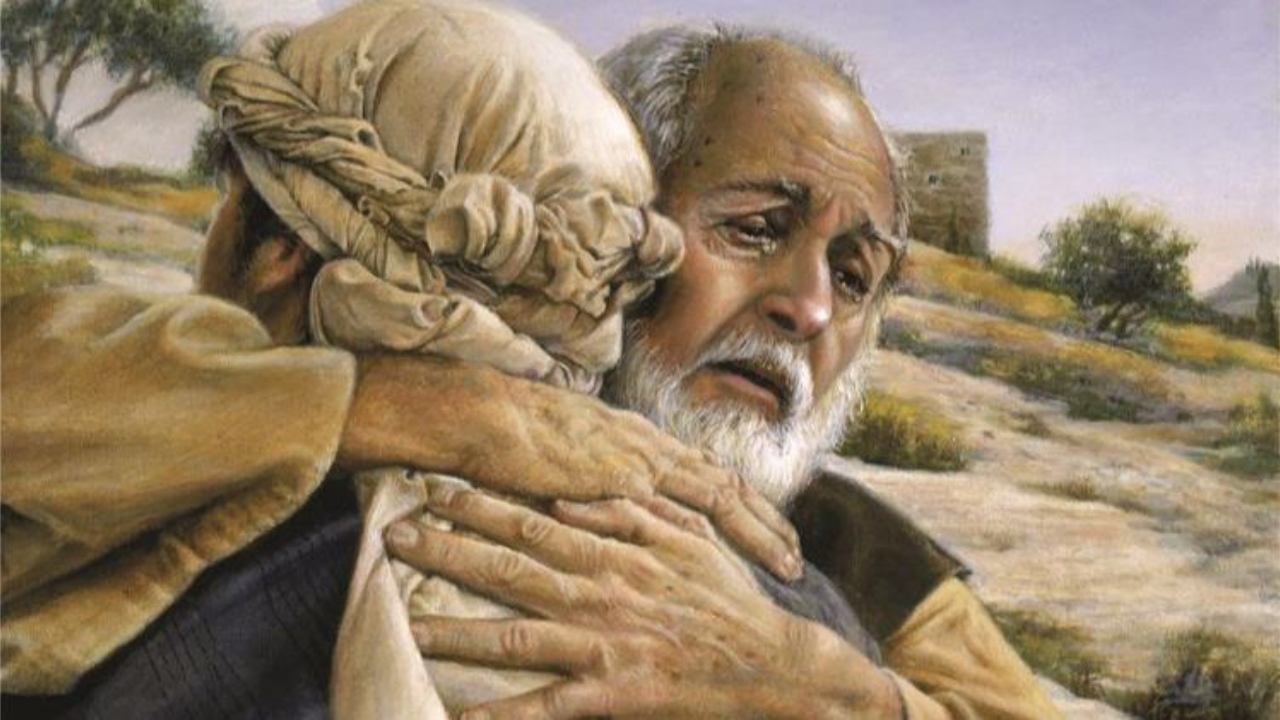Deep Dive into Jesus' Prodigal Story Part 1: The Death Wish
Sep 07, 2023
Kenneth Bailey wrote a great book on Luke 15. It's called The Cross & the Prodigal, Luke 15 Through the Eyes of Middle Eastern Peasants. In this book, Bailey "highlights the tensions between law and love, servanthood and sonship, honor and forgiveness that grant this story such timeless spiritual and theological power." (That's what the publisher said on the back cover.)
I became acquainted with this book when I took a class led by Kristi McLelland called The Running Father. I highly recommend her teaching on Luke 15. You can learn more about her ministry by going to New Lens Biblical Studies.
Using Bailey's book, I'm going to blog my way through what he taught me in his book, adding my own twist to what I'm learning. (I know, you're surprised about that, aren't you?!) My prayer is that you learn a whole lot that you didn't know before by taking this deep dive into Jesus' parable of the prodigal son with me.
Let me just go ahead and be completely honest with you. I'm writing these blogs to create the lessons I'll be sharing each week as Tom and I teach a course at our church called "Perfecting the Art of Parenting Your Prodigal(s)." When I get this course completed, I'll add it to the courses offered online on my websites. :)
Here we go!
The Death Wish
"He also said: “A man had two sons. The younger of them said to his father, ‘Father, give me the share of the estate I have coming to me.’ So he distributed the assets[a] to them." Luke 15:11-12 HCSB
Bailey wrote this about the son's request found in these verses, "Such a request in village society means only one thing: The younger son is impatient for his father's death."
Thus, "the death wish."
Of course the father's wealth would be divided amongst his descendants upon his death, but to request one's portion before his father's death was even imminent was unheard of. Bailey, who spent 40 years living and teaching in seminaries and universities in Egypt, Lebanon, Jerusalem and Cyprus, did a little survey. He asked villagers this question,
"Has anyone ever made such a request in your village?"
Here is the example Bailey shared regarding the way this conversation went:
"Never!"
"Could anyone ever make such a request?"
"Impossible!"
"If anyone ever did, what would happen?"
"His father would become very angry and refuse!"
"Why?"
"This request means he wants his father to die!"
Understanding the Honor/Shame Culture
Let me take a minute to talk a little about the honor/shame culture in Jesus' middle eastern world. Kristi tells us that the honor of the father was paramount in this culture. In an honor/shame culture, the emphasis is on honor more than right and wrong. Honor is everything and family honor is at the pinnacle of the culture. I found this in an article called The 5 Un-Written Rules of Honor -Shame Cultures, rule #1 is this:
Family defines everything.
In collectivistic societies, identity is defined by the group you belong to. When two people meet, one of the first items of conversation is figuring out which family, clan, or village the other person is from. Since honor is a shared commodity, what one person does brings honor (or shame) upon the entire community. Children are taught from an early age how to bring honor to the family, and people are expected to be loyal to their community, even at personal cost.
In Western cultures, family is much more of a voluntary association. At the age of 18 or so, young adults are encouraged to venture out from the home to “find themselves” or “establish their own lives.”
Another aspect of Jesus' culture is that the people valued "we" over "me" and "us" far more than "I." Any action by an individual impacts the entire community. Doing good for the group is far more important than looking out for yours truly.
Kristi mentions a 3rd observation about the culture Jesus was living in when He shared this story. It was a Patriarchal culture. In a patriarchal society, the honor of the father is supreme. Mostly this meant that children lived to bring honor to their father by increasing his wealth. Of course they benefitted from the wealth of their father, and received their portion at his death. But while he was living, his honor was far more important than anyone else's.
What exactly is the son's portion?
I hope that you realize by now, that not only would Jesus' listeners have been astounded by the son's request, but they also would have been confused and flabbergasted at the father granting his son's request.
For they were immersed in the honor/shame, community centric, patriarchal culture of their day, AND they understood the portion this boy was asking to receive.
Near the impending death of the father, heirs were given legal right of possession of the family's wealth but not right of disposition. The property belonged to the heirs, but as long as the father was living, he still had control over it. This father's son was asking for both the legal right of possession AND the right of disposition so that he could do what he wanted to do with it.
His request was rude...
audacious...
impertinent...
selfish...
arrogant...
hurtful...
harmful...
wrong...
...and yet, his request was granted by his father.
Subscribe for regular updates on Blogs and Podcasts
We hate SPAM. We will never sell your information, for any reason.

